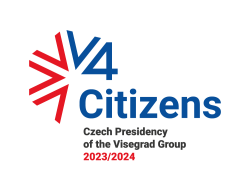The Heads of Government of Poland, Czech Republic, Hungary and Slovakia, the President of the French Republic and the Chancellor of Germany met on March 6, 2013 in Warsaw to discuss the economic developments in the European Union, the future architecture of the Economic and Monetary Union and the strengthening of the Common Security and Defence Policy (CSDP).
The meeting was organised in the framework of the Polish Presidency in the Visegrad Group.
Multiannual Financial Framework (MFF)
They expressed their satisfaction with the compromise reached on the MFF at the recent European Council, and reaffirmed their determination to reach consensus with the European Parliament.
Economic and Monetary Union (EMU)
They agreed that the transformation of the Economic and Monetary Union (EMU) should be driven by four principles: competitiveness, growth, employment and openess. The process should be inclusive—all member states willing to participate in deeper integration should be welcome.
In this context, they discussed the importance of the so called contracts for competitiveness and growth which could serve as an instruments of implementing necessary reforms to restore balanced growth in the EMU and better prepare willing pre-in economies for the adoption of a common currency in the future.
Competitiveness and Growth
They agreed that improving competitiveness is of primary concern as it is a prerequisite for visibly and decisively contributing to the achievement of sustainable growth and employment.
They stressed their determination to finalize the Single Market by removing remaining barriers, especially in the online services sector. Europe should stay committed to a fully functioning digital single market. Particular focus should be put on such areas as e-commerce and the delivery of broadband. They discussed the issue of tax systems which should reflect the new reality, equally applying to digital and traditional sectors.
They underlined that completing the internal energy market and making it fully operational is paramount, as energy prices influence the EU’s competitiveness.
They agreed to focus on reversing the current downward trend of manufacturing industry's contribution to the EU's GDP and stressed its vital role as one of the major drivers of growth and employment.
They acknowledge high priority of EU's trade policy and agreed that it should aim at asserting EU's interests, in a spirit of reciprocity and mutual benefit. They stressed the importance of improving and deepening trade relations with the EU’s strategic partners such as the US and Japan, as well as achieving progress as regards the Eastern Partnership countries.
Cooperation on security and defense issues
They reconfirmed their resolve to work actively on strengthening European defence capabilities, the EU Common Security and Defence Policy (CSDP) and NATO.
They expressed their conviction of the need to pool military and defence resources, taking advantage of existing regional institutions and mechanisms such as the Visegrad Group (V4) and the Weimar Triangle in order to address the pressures on military budgets exerted by the global financial crisis.
They declared their expectation that the European Council in December 2013 will further guide the development of the EU CSDP in all the areas indicated by the European Council in December 2012.
Acknowledging the value of EU Battlegroups and the creation of the Weimar one that is currently on stand-by, they consider it important that their use be increased and they be further developed. They welcomed the plans to create the Visegrad Battlegroup by 2016
They expressed hope that closer defence cooperation will help to make the “NATO 2020” vision a reality. With the termination of ISAF operation in 2014, it becomes evident how important allied forces’ interoperability is and how essential it is to maintain it. While striving to devise ways how to cooperate mor effectively.
They affirmed the need to pay attention to how NATO addresses the challenge of interoperability, intending to focus on training, education, and exercises.1








